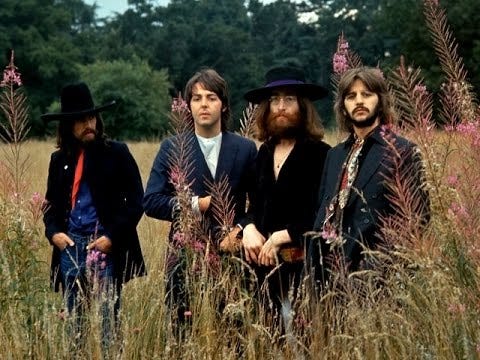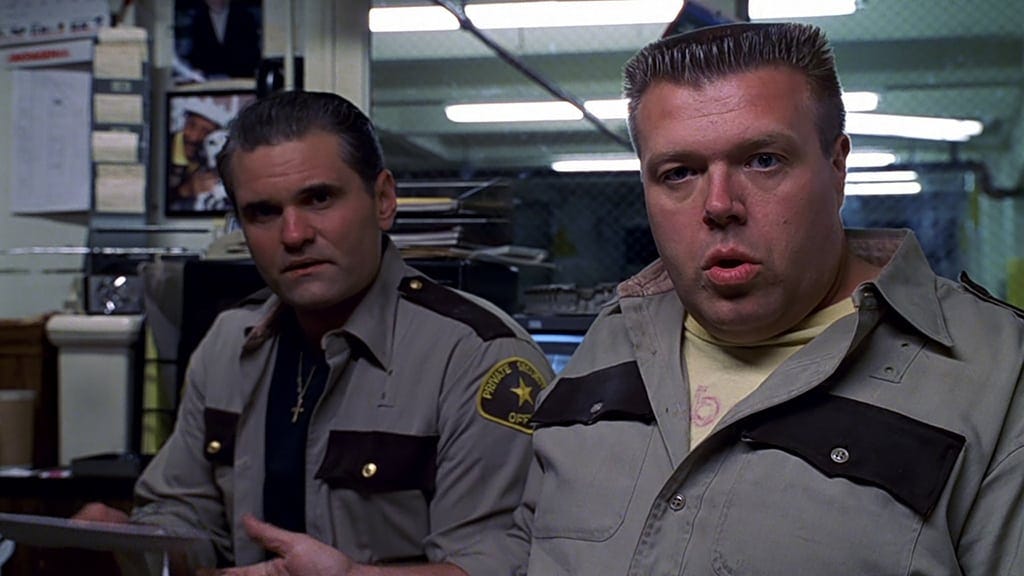The best thing The Beatles ever did was break up. Okay not really. The best thing they did were all those albums and singles, concerts and films that came before. But ending was a genius move. They and their fans could feel they were drifting, falling apart, moving away. They could go on but something was going to give so after a few wobbles it finally happened. The last song they recorded altogether was fittingly “The End,” which played out the Abbey Road album.
We might wish there had been one more album and there are careers which have been long and productive, but the price for longevity is an inevitable drift into and out of the world of the less good, perhaps the plain bad. The Rolling Stones, Bob Dylan and David Bowie: they all had their Tin Machines. Bowie even called his one Tin Machine. Individual artists have no choice but to go on as long as they want of course. I don’t want any death cults. But during an interview on 60 Minutes, Dylan marvelled at how he wrote songs as a young man: “Magic wrote that.” Asked if he could write lyrics like “It’s Alright Ma,” now, he says, “I could once. I can do other things now, but I can’t do that.”
There’s a wisdom to this realization. Some get about five years at the top. Their fame, their power, their creative energy. Some get longer, but then they have to change. They can go in a different direction, accept different roles, break up the band and go solo, but the worst thing they can do is resist the march of time. The movement that brought you here is exactly the same movement that is going to take you away. It is relentless and necessary. The destination - if you want to get all morbid about it - is death, but the movement itself is life.
So we shouldn’t demand of our artists that they continue to do what we love. Same again please. More. More. That’s not what we really want: it’s just what we think we want.
But our society is geared to give us what we think we want. The dopamine hits that come from the mini-videos of the same thing; the relentless franchise; the stultifying nostalgia; the anti-comedy of call backs: what Philip Larkin once described as a “vast moth-eaten musical brocade Created to pretend we never die”. He was talking about Christianity; I’m thinking about the Marvel Cinematic Universe.
Just stop. It was good. Honestly I liked some of them. If you like it, go and watch any of the 35 movies that have already been made. There are another ten currently in pre- or actual production. You can watch one a day and it will take more than a month. Add other comic book movies and franchises such as Star Wars, Fast and Furious, 007 and you can watch movies all day long for years without every coming into contact with anything that’s actually true. The move to streaming is particularly telling because that movement, that endless stream, is what we are looking at. A whole water cycle of evaporation, precipitation, streams, rivers and oceans and back to evaporation once more. And some of the rain just falls into the oceans straightaway, because even rain gets tired of the bullshit sometimes.
The endless storytelling has a precedent in world literature with the classic Arabian Nights, or One Thousand and One Nights. A young woman betrothed to ruthlessly homicidal and psychotically jealous king, Scheherazade, tells a series of tales every night, making sure to leave each incomplete, only to finish it the next night and begin a new one which will also remain incomplete. With this Narrative-us Interruptus, she thus preserves her life and keeps the king coming back for more. But vitally she does finish the stories. She is all about not allowing the king to binge watch a whole season. Scheherazade is the symbol for the return of network television surely.
Soap operas don’t have endings. Sit-coms can become soap operas. See Happy Days, even before Fonz jumped a shark. Or Moonlighting when it stopped being funny and started being a will they or won’t they. Once they did, it was done.
An ending is very important for the writer: essential. The one huge importance you have over the reader, the audience is that you know how it ends and they don’t. Your knowledge can help you all the way through. Chekov puts the gun in Act One because he knows he’ll need it in Act Three.
The Ending is the defining element of a story. A friend of mine who teaches film - let’s call him Paul Cronin - is often asked by students to read their screenplays. He’ll try and put them off and say he doesn’t have time. “Just read the first five pages,” they’ll say. In the end, he’ll say okay but he’ll ask for the last five pages. “With a beginning all I know is if they have a situation. With the end, I’ll know they have a story.”
If only we’d asked George RR Martin to read the last five pages all those years ago.
The ending says: this is worth your time, because it’s like life, it doesn’t go on and on forever. It’s The Beatles: it’s the Anni Mirabilis of Bob Dylan. And once it stops, like an audience member of The Truman Show, we can always just say: “See what’s on the other side?”






It pains me to say this, but based on his performance at the SNL 50 show, it would seem Sir Paul might want to consider stopping.